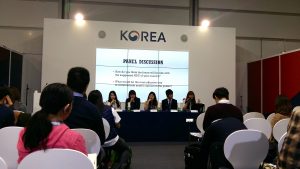
I’m happy to say that things have continued chugging along since the last post. With a sense of where relevant resources are and deepening my connections people related to my focus areas, I feel that I have a direction and that I am where I want to be.
Focus area 1: Local Communities and Indigenous Peoples’ Platform
Prior to departing for COP23, my teammate Colton had begun coordinating a meeting between our delegation and Chief Bill Erasmus. Chief Erasmus is National Chief of the Dene Nation in the Northwest Territories (NWT), Regional Chief for NWT in the Assembly of First Nations (the organization that represents First Nations in Canada), and North American representative in the International Indigenous Peoples’ Forum on Climate Change.
Chief Erasmus also works in partnership with the Canadian delegation as an Assembly of First Nations representative, and has worked with Canada on past COPs too. Considering Chief Erasmus’ experiences and busy schedule, we were very fortunate to be able to have lunch with him on Thursday. It was an extraordinarily enriching meeting in many ways. Firstly, Chief Erasmus shared valuable insights that deepened our understanding of First Nations perspectives and Canada’s climate action. One revelation that was particularly surprising and core to our team’s interest in youth participation in COP is that from a First Nations’ perspective, youth are not a distinct category. For instance, if Chief Erasmus was deciding who to bring along to COP, he would determine it based on skills they brought rather than just to represent “youth”.
Another was that Chief Erasmus encouraged us to trust him and other Indigenous representatives to get the LCIP Platform up and running in a way that was in line with their expectations. His positive outlook was heartening to hear.
Finally, Chief Erasmus also asked us questions that challenged me to express what my priorities were and how I planned to achieve them. My answers were clumsily worded, which shows that I ought to put more time into preparing my thoughts.
In these ways, the meeting was incredibly important in informing my own opinions about what the LCIP Platform should include and what other measures Canada should take to advance it.
I also appreciate how generous Chief Erasmus was with his time and energy. Each time I ran into him over the course of the week, he always said, “Hi,” properly in a conversation (rather than waving from afar) and introduced us to his colleagues. We felt valued, which was a nice and surprising feeling to have given our younger age. Meeting with Chief Erasmus has also made me feel a bit more connected to the negotiations, as there’s now always a friendly face in the room.
Focus area 2: East Asia
The key side event I went to that captured this focus was an (East) Asian Youth Dialogue on climate change policies. Over the course of two hours, I got the low-down on East Asia’s national policies to achieve climate targets and the youth take on them.
It sounds silly that I had to go to Europe to learn about what peers in Asia are thinking and doing, but it does help. I had little clue about where to begin any research on the area when I sat in front of my laptop in Vancouver, so learning about the key youth organizations and their activities from the in-person presentation truly helped. More importantly, I had the chance to start a relationship through face-to-face interaction rather than an email to be read off a cold screen. We could also more freely and quickly exchange thoughts, and thus cover a lot of ground.
With a few new business cards and additions to my WeChat and Kakao friend lists, I don’t feel so alone in my journey to support Canada-East Asia collaboration.

In sum, meeting people and spending time with them has helped me progress on my focus areas. Thanks to them taking the time to speak with me, I’ve learnt more about the area. Hopefully, as I stay in touch with them, I can continue learning from them and be of service to them as well.